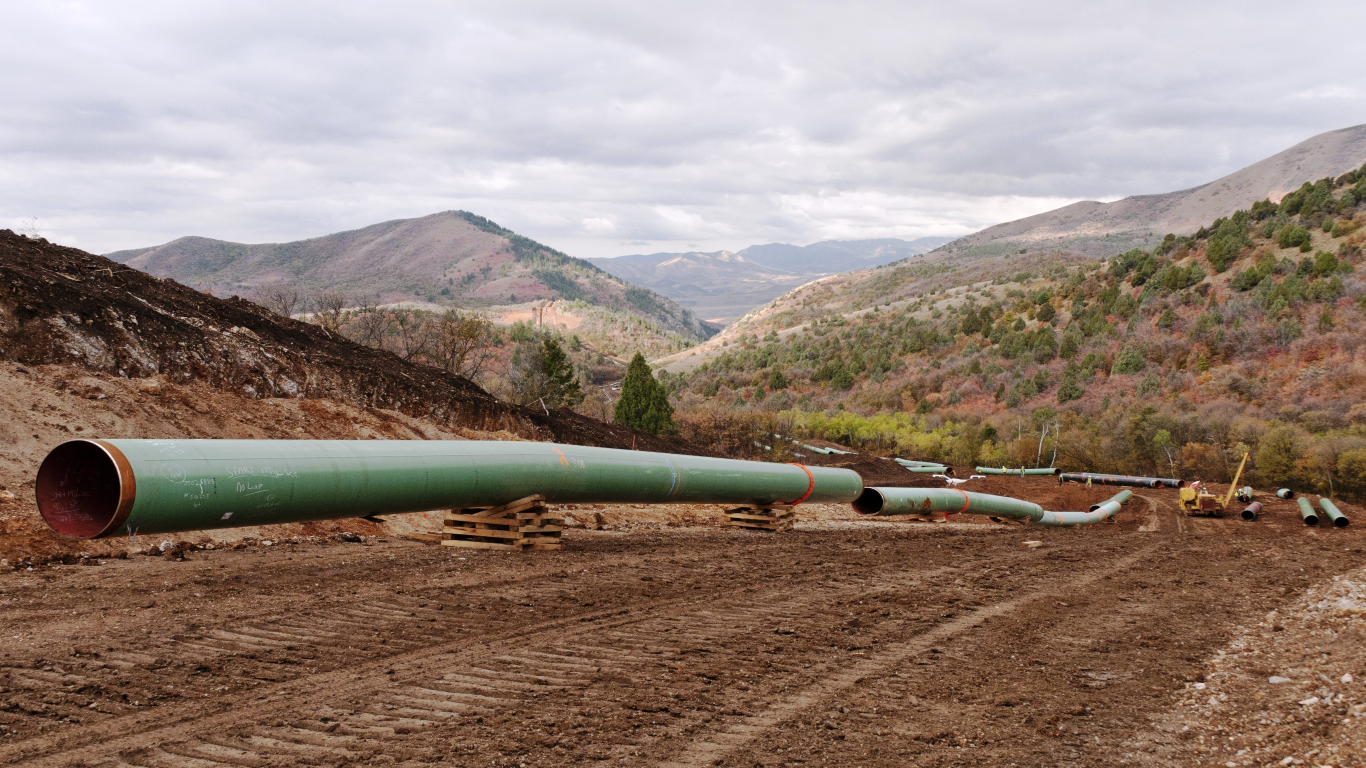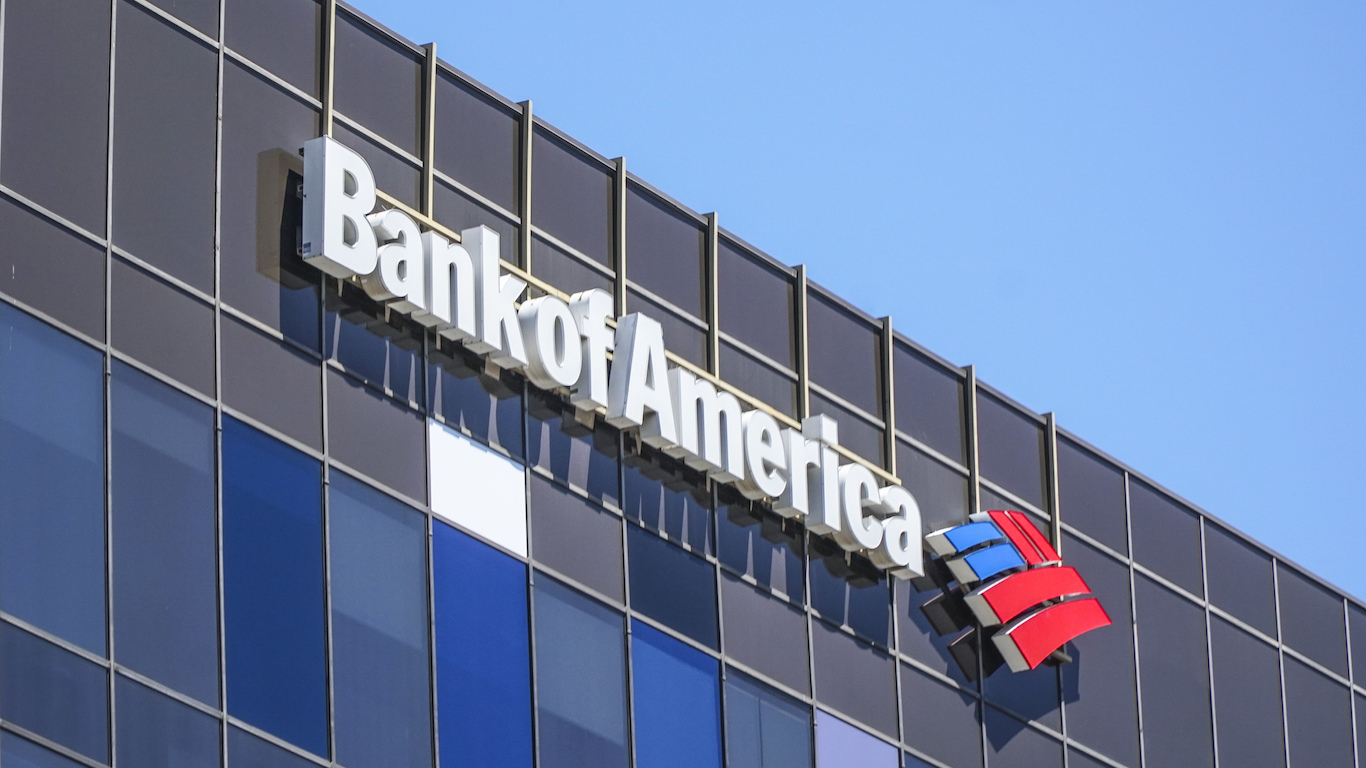
Canadian resistance to buying the Trans Mountain pipeline system Kinder Morgan Inc. (NYSE: KMI) subsidiary Kinder Morgan Canada is increasing, and with it so is short interest in Kinder Morgan. Short sellers added 12.5 million shares to their positions in the two-week reporting period ended July 31, and 2.4% of Kinder Morgan shares were short.
Environmental groups and Canadian First Nations have ramped up opposition to the Trans Mountain expansion project, but the rise in short interest may be due to growing doubt among investors about whether the U.S. government will approve the pipeline’s sale to the Canadian government.
A report last week at the Institute for Energy Economics and Financial Analysis (IEEFA) noted that the Committee on Foreign Investment in the United States (CFIUS) must approve the sale. And because one of the assets included in the sale is an existing pipeline that crosses the Canada-U.S. border, the U.S. State Department must issue a “presidential permit” for the sale. Given the current frosty relationship between the U.S. and Canadian governments, neither of these approvals is a foregone conclusion.
Then there’s a potential increase in the cost of the expansion project. In a filing with Canadian regulators earlier this week, Kinder Morgan Canada Ltd. (KML) revealed cost estimates to complete the Trans Mountain expansion project that were as much as C$1.9 billion higher than the published estimate C$7.4 billion. The new estimates are included in the company’s proxy filing and announcement of a special meeting of KML shareholders scheduled for August 30 in Calgary.
Canada’s federal government has agreed to acquire the Trans Mountain system for C$4.5 billion and to contract with KML to complete the construction project that expands the system’s capacity from 300,000 barrels a day to 890,000 barrels a day. The pipeline transports crude oil from the oil sands of Western Alberta to a KML terminal near Vancouver where it will be loaded on ships for transport, primarily to Asian and U.S. west coast buyers.
According to the proxy statement, KML’s consultant on the sale, TD Securities, considered three scenarios: one in which the Trans Mountain project does not proceed to completion; a second in which cash costs increase to C$8.4 billion and the project is completed by December 2020; a third in which cash costs rise to C$9.3 billion and the project is not completed until December 2021.
In a report at CBC.com, Canada’s finance minister, Bill Morneau, was said to be “reluctant to talk about how much more it will cost to build the pipeline” while the sale is still being finalized. Another official told the CBC off the record that the numbers in KML’s proxy statement “do not specifically reflect the government’s expectation” for the final cost.
Independent economist Robyn Allen told the CBC that C$9.3 billion “is the least that [the project] will cost.”
The Canadian government intends to purchase the Trans Mountain system and then sell quickly to another private company. That may be more difficult to do if the cost of completing the expansion project balloons. Kinder Morgan tried and failed to find a buyer before agreeing to the current deal.
According to the TD Securities review, if the expansion project is not completed, the implied value for the Trans Mountain system is between C$2.2 billion and C$3.1 billion. From where we sit, Canada may be about to plunk down C$4.5 billion for a pig in poke. If scrutiny of the deal intensifies, Kinder Morgan may not realize a payday after all, and that’s what the short sellers may be counting on.
Kinder Morgan shares traded up about 0.4% Friday morning, at $18.01 in a 52-week range of $14.69 to $19.85. The 12-month consensus price target on the stock is $21.21.
It’s Your Money, Your Future—Own It (sponsor)
Retirement can be daunting, but it doesn’t need to be.
Imagine having an expert in your corner to help you with your financial goals. Someone to help you determine if you’re ahead, behind, or right on track. With SmartAsset, that’s not just a dream—it’s reality. This free tool connects you with pre-screened financial advisors who work in your best interests. It’s quick, it’s easy, so take the leap today and start planning smarter!
Don’t waste another minute; get started right here and help your retirement dreams become a retirement reality.
Thank you for reading! Have some feedback for us?
Contact the 24/7 Wall St. editorial team.
 24/7 Wall St.
24/7 Wall St.



